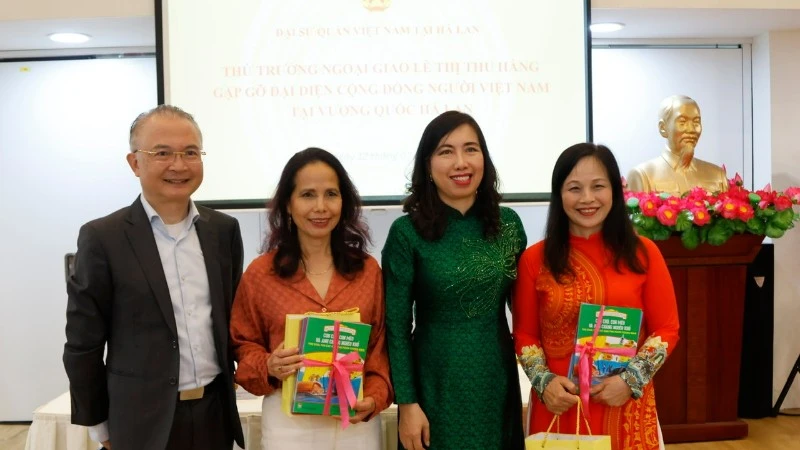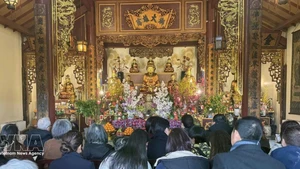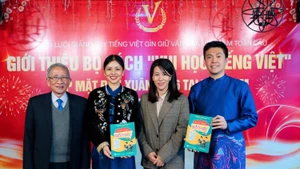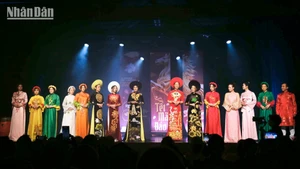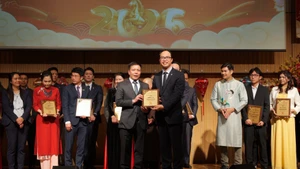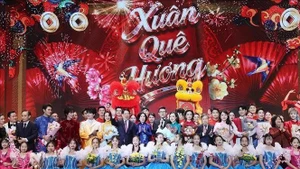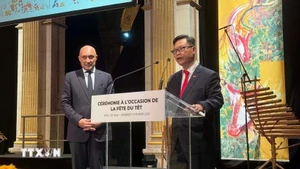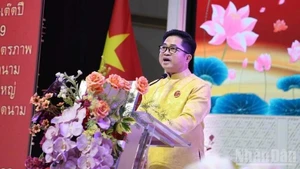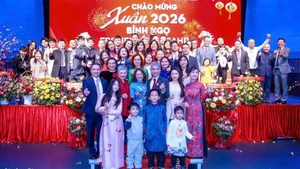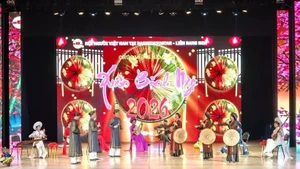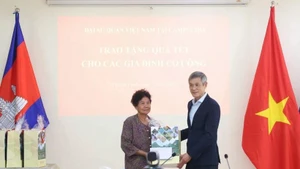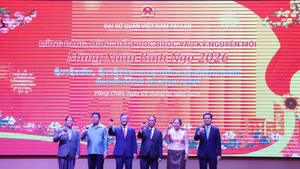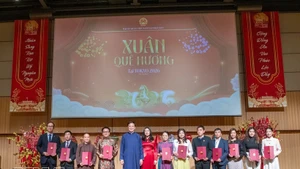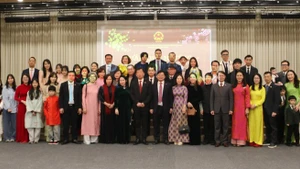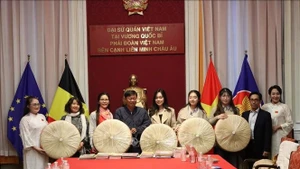A working delegation from the State Committee for Overseas Vietnamese Affairs (SCOVA) under the Ministry of Foreign Affairs, led by Deputy Foreign Minister Le Thi Thu Hang, held a meeting with representatives of the Vietnamese community in the Netherlands at the Embassy of Vietnam in The Hague on July 12. The event was part of the delegation's official visit and working trip to the Netherlands from July 10 to 12.
At the meeting, Vietnamese Ambassador to the Netherlands Ngo Huong Nam provided an overview of the Vietnamese community and the embassy’s work relating to overseas Vietnamese.
Ambassador Nam shared that the Vietnamese community in the Netherlands is quite small, accounting for only 0.15% of the country’s population. As of July 2025, the Vietnamese population in the Netherlands stands at 27,237, with people residing across cities such as Almere, Purmerend, Hoorn, Harlingen, Leeuwarden, and Spijkenisse.
Most members of the community have acquired Dutch citizenship, are well-established, and have integrated effectively into local society. At the same time, they maintain a strong connection to their homeland through various activities. The community’s high regard for education is widely recognised. Since the early 2000s, there has been an increase in Vietnamese students pursuing PhDs, master's, and undergraduate degrees in the Netherlands, particularly in scientific research, high technology, software development, and logistics.
In recent years, Vietnamese community associations in the Netherlands have experienced robust growth, marked by the establishment of several new organisations, including the Vietnamese Association in the Netherlands (established in October 2022), the Vietnamese Women’s Association in the Netherlands (January 2023), the Vietnam Women’s Union in the Netherlands, and the Vietnamese Scientists and Technologists Association in the Netherlands (established in 2007). Notably, Vietnamese language classes and the Truong Sa Club have been especially active.
On behalf of the Vietnamese community in the Netherlands, representatives from these associations reported on their activities and made several recommendations to the Party, the state, and the government regarding policies on economic development, science and technology, and support for overseas Vietnamese.
The representatives expressed their gratitude to the Party, state, and government, especially the Ministry of Foreign Affairs and the Embassy, for consistently safeguarding the rights and interests of the overseas Vietnamese. They expressed joy at Viet Nam’s recent achievements and rising global standing, following developments closely and wishing to contribute to the nation’s advancement in this new era.
The delegates also expressed hopes for greater facilitation in areas such as nationality procedures, business-related paperwork, and online payments. They requested financial support and training for teaching Vietnamese language online, and expressed interest in welcoming cultural performance troupes from Viet Nam to help promote Vietnamese culture abroad.
Speaking at the meeting, Deputy Foreign Minister Le Thi Thu Hang commended the Vietnamese community in the Netherlands for their active contributions in community building, cultural preservation, Vietnamese language education, and charitable efforts to support people in Viet Nam affected by storms, natural disasters, and in national campaigns supporting Viet Nam’s maritime and island sovereignty, especially the beloved Truong Sa (Spratly Islands).
Deputy Minister Hang also briefed attendees on Viet Nam’s socio-economic development and foreign policy, including the country’s cooperation with the Netherlands. She shared about the determination and efforts of the Party and the people to comprehensively reform the nation and thrive in the new era.
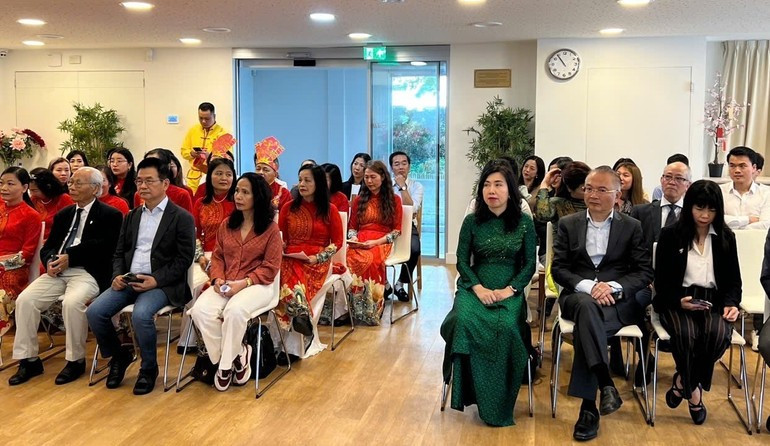
Deputy Minister Hang called on the Vietnamese diaspora in the Netherlands to continue making valuable contributions while maintaining solidarity and a shared vision of building a strong and well-integrated community that elevates its standing in Dutch society and preserves Vietnam’s language, culture, and ancestral traditions.
She emphasised that the Party and Government of Viet Nam consistently prioritise the legitimate rights and interests of overseas Vietnamese. Recent legislative reforms, including amendments to the Law on Nationality, the Land Law, the Housing Law, the Law on Real Estate Business, and the Law on Identity, have created favourable conditions for overseas Vietnamese to stay connected, promote their strengths, and contribute to the nation’s comprehensive reform and growth in the new era.
